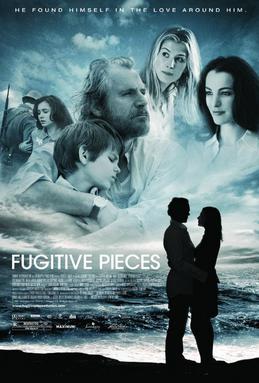 |
| Brenda Blethyn and Keira Knightley in Pride & Prejudice |
Mr. Darcy: Matthew Macfadyen
Mrs. Bennet: Brenda Blethyn
Mr. Bennet: Donald Sutherland
Jane Bennet: Rosamund Pike
Charles Bingley: Simon Woods
Lydia Bennet: Jena Malone
Mr. Wickham: Rupert Friend
Mr. Collins: Tom Hollander
Kitty Bennet: Carey Mulligan
Lady Catherine de Bourgh: Judi Dench
Caroline Bingley: Kelly Reilly
Mary Bennet: Talulah Riley
Charlotte Lucas: Claudie Blakley
Georgiana Darcy: Tamzin Merchant
Mr. Gardiner: Peter Wight
Mrs. Gardiner: Penelope Wilton
Director: Joe Wright
Screenplay: Deborah Moggach
Based on a novel by Jane Austen
Cinematography: Roman Osin
Production design: Sarah Greenwood
Film editing: Paul Tothill
Costume design: Jacqueline Durran
Music: Dario Marianelli
Joe Wright's lush, romantic adaptation of Jane Austen's Pride and Prejudice (the ampersand belongs to the film) irked many Janeites. But people who love Austen's books are fated to be irked: There is no easy way to translate to film the narrative ironies that readers seize on with delight. Wright and screenwriter Deborah Moggach (with uncredited help from Emma Thompson) have crafted a Pride & Prejudice that takes place in a universe parallel to Austen's. They push back the time of the novel from the early 19th century to the late 18th. Tinkering with time is not unique to films of the novel: The 1940 version starring Greer Garson and Laurence Olivier and directed by Robert Z. Leonard moved the action up to the Victorian period, maybe to take advantage of MGM's wardrobe full of crinolines and hoop skirts. Wright's earlier time period allows for a looser, more earthy setting, more Henry Fielding than Jane Austen. There are clotheslines and farm animals to be seen, and the first of the two balls that take place in the film is rougher, sweatier, more countrified than the elegant formal dances usually seen in period films. Elizabeth Bennet arrives at Netherfield with her hair about her ears, not neatly pinned under her bonnet. Later, she spins barefoot on a rope swing hung at the entrance to the barnyard, and at one point an enormously ungelded hog walks through the action. Even the formal dress is different: With her upswept hairdo, Judi Dench's Lady Catherine looks like she has just stepped out of a Joshua Reynolds portrait. The real strength of Wright's version is not in its fidelity to the novel, but in its creation of a satisfyingly consistent world in which it might have taken place, mutatis mutandis. There is some elegant staging: Visiting Pemberley, Elizabeth finds herself in a sculpture hall, where the nude statuary adds a frisson to her awakening attraction to Darcy. The ballroom scenes are beautifully filmed with long traveling takes among the various characters. And Dario Marianelli's score, with its suggestions of Haydn, Mozart, and Beethoven, isn't overstated. Keira Knightley's fetching underbite suggests Elizabeth's stubbornness and pride, and she's well-matched with Matthew Macfadyen, who has the thankless task of following in the footsteps of Olivier and Colin Firth, who became a sex symbol with his Darcy in the 1995 television series. Macfadyen is not conventionally handsome -- he's a little potato-nosed -- but that serves the character well: Darcy should not be an instant heartthrob like, for example, Mr. Wickham. There will never be a perfect film version of the novel -- for that matter, of any novel -- but Wright's Pride & Prejudice satisfies for what it is, a lesser work derived from a great source.
